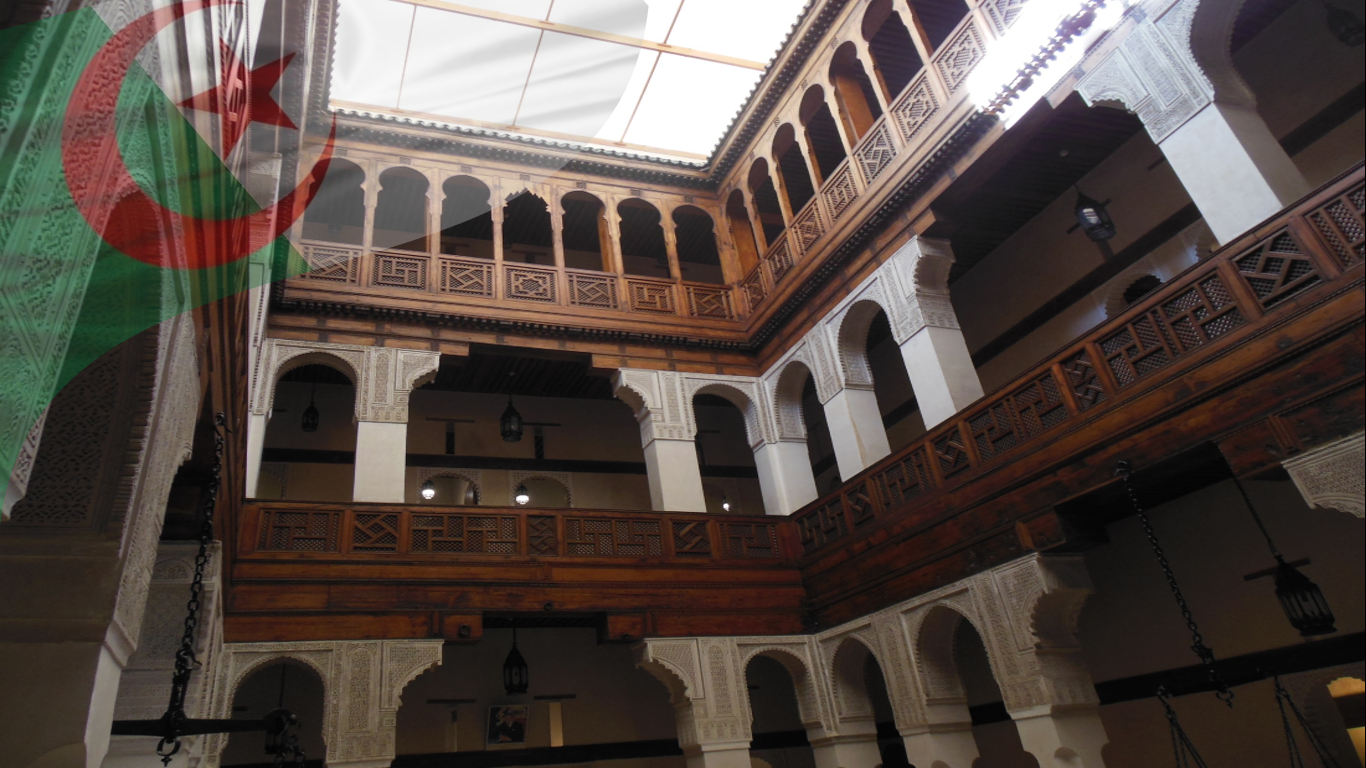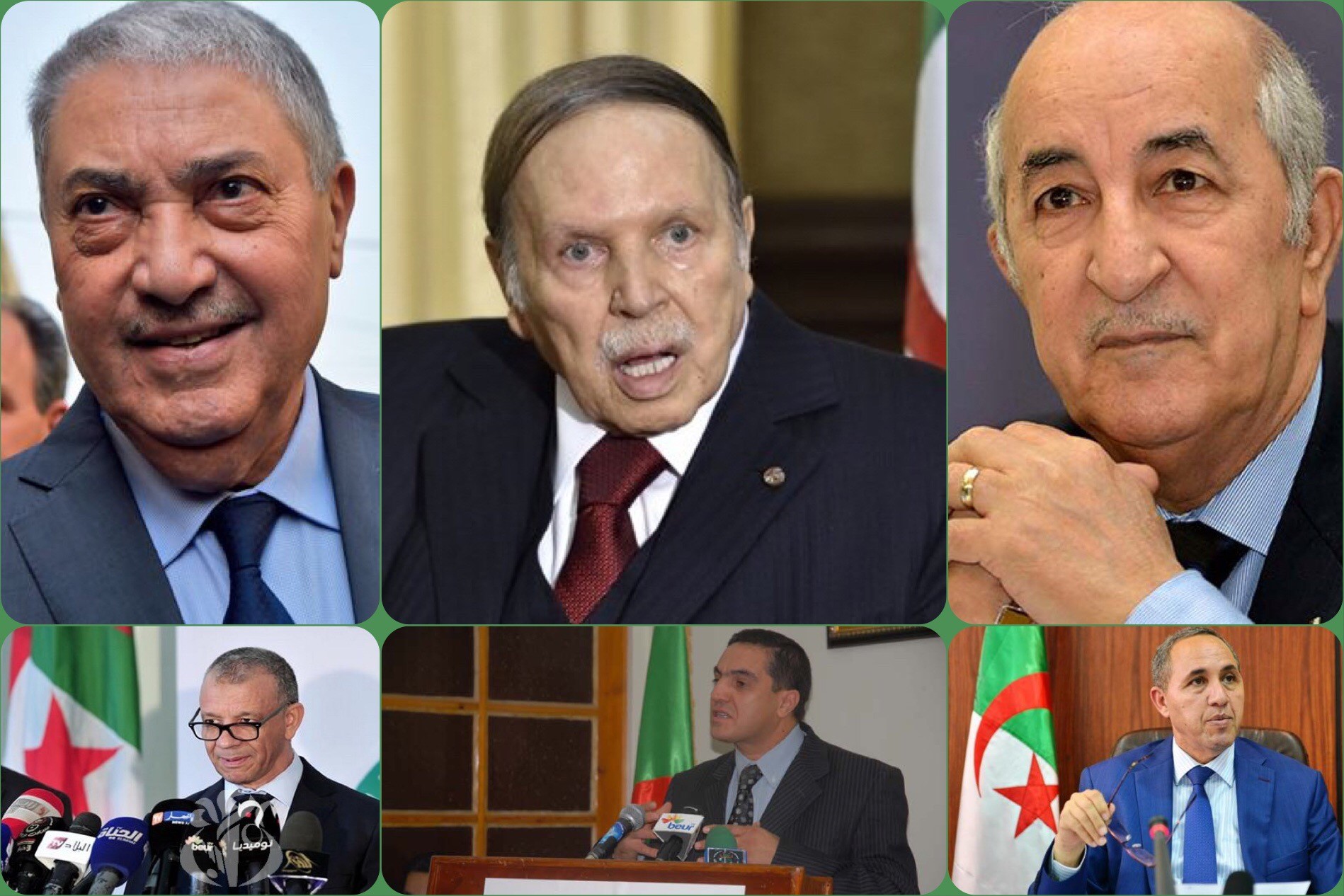Algeria faces new presidential elections this year. There is nothing new in it, they were indeed scheduled for 18 April, but they will eventually be held on 12 December. The reason is not the famed Middle Eastern punctuality, but surprisingly the fact that the thus far unshakable President, ‘Abd al-‘Azīz Bū Taflīqa, the last remaining antiquity from the state-funding era, decided to run for a fifth term. Well, probably his entourage decided that, as he was practically incapacitated by his stroke in 2013. That was already a controversial issue and our topic in April, but the protests bursting out than against the aging president’s last bid caused fundamental changes in Algeria. Or at least it would seem. Since the outbreak of the protests, which last week arrived to its 40th Friday protests removed so many formerly untouchables that Bū Taflīqa’s resignation and withdrawal from the elections seems to be the smallest change. Out of the roughly 40 candidates, who wanted to run in April only two stayed in the race, but they seem to be the smallest contestants.
The main question of the elections, which is clear from the candidates, whether Algeria truly starts a new process and transition from the Bū Madyān state to something new, or the old establishment manages to play the trick once again to cross the national expectations and stabilize itself. In that regard the candidates gives us some clues, but there was a more telling and tangible process, which started with Bū Taflīqa’s demise, and probably ends with the presidential elections.
These changes are for long unseen in Algeria and truly brought some fresh air to the country. But whether this is just an interval in the same old process, or the beginning of something new is yet to be seen. Revealing some of these details and giving guesses about the elections, shall be our topic for this week.
Not for the fifth time
‘Abd al-‘Azīz Bū Taflīqa will probably go down in history as one of the last controversial figures of modern Algerian politics. As we dealt with him before, he was one of the smaller heroes of the war of independence from France, and one the favorite disciples of the legendary president Bū Madyān (1965-78). He was one of the likely candidates to succeed him, but with the ascendence of the compromise contestant, Bin Ğadīd (1978-91) he practically retired and stayed away from the limelight during the bloody decade of the ‘90s. Which enabled him to return in 1999 as the savior, who can bring an end to the infightings. His first two terms until were largely successful putting Algeria back on its feet, and that was the time when he, though still enjoying the support of the military-security establishment, employed the most technocrats. Would he to stop then, probably he would be remembered as the savior of the country. His third term was the time, when daily governance started to slip out of his hand and the old guard started to slowly reappear. His 2013 stroke put daily matters in the hand of his brother, Sa‘īd, the Chief of Staff of the Military, Aḥmad Qā’id Ṣāliḥ, the last of the still remaining strong men of this era, and a set of influential Prime Ministers. The latter group, which was gradually taking over the state and started to run the administration, the ruling party (FLN) and the new liberal economy, were the prime targets of the unrest, which broke out this year.
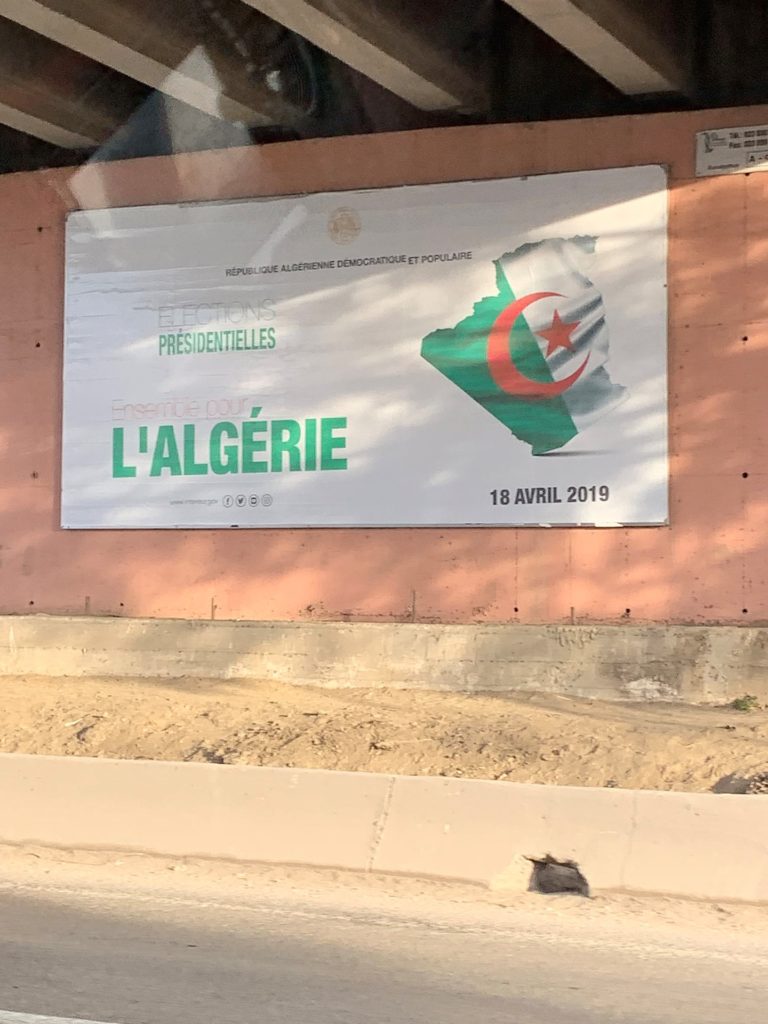
Probably the last phase in Bū Taflīqa gradual demise was not his stroke, but started in 2014, when he was ending his third term was still a time filled with concerns all over the Middle East. And indeed, Algeria managed to evade a fate similar to that of Tunisia, Libya and Egypt, the entire storm of the so called Arab Spring, after which in the whole North Africa only Algeria was not shaken. Which probably was due to the president’s own charisma, but much more to the bitter experiences of the ‘90s, which horrifically resembled the events of Syria, Libya and Yemen. The people, but just as much the security establishment so famously powerful in Algeria would have none of that, only jut recovering from the ashes. But probably the same concerns and the bitter competition between the military-security establishment and the political clique in one hand, and the same race between the generals themselves prevented the untouchables to pick a new figurehead president. That lead to Bū Taflīqa’s fourth and final election in 2014, which was already quite scandalous, as he could barely manage to vote, and made a laughingstock out of Algeria. The fourth term was the least effective, clearly demonstrating that state management was losing priority. The party-business elite started to race to consolidate its influence for the post-Bū Taflīqa era, while a major purging and reconstruction process, already under the title of anti-corruption campaign, started in the military-security apparatus. While most of the commanders of the military districts, and the paramilitary Gendarmerie were replaced, the biggest prize in the process was the dismissal of General Muḥammad Madyān and the complete restructuring of the Intelligence and Security Department (DRS – former military security, and overall intelligence agency overseeing all special operations).
It is only suspected, but so far impossible to confirm that this very process and preparation for the post-Bū Taflīqa era prevented the establishment to choose a fresh candidate and rejuvenate the system. That lead to Bū Taflīqa’s announced bid for a fifth term. By that time the aging president lost all his former glory and started to symbolize the ever more corrupt and inefficient elite. Most especially, because very few people believed that this decision was made by Bū Taflīqa himself, and it was much more accredited to his hated entourage.
As the protests erupting in 16 February only ten days after the president’s announcement to run again and only days after the military and the party elite backed the decision, started to grow in numbers the establishment grew to be ever more adamant, sensing a possible complete meltdown. And that put the administration in the crossfire. A careful maneuvering started, when the Electoral Council’s President, ‘Abd al-Wahhāb Darbāl decreed that all candidates have to present their folder personally. Which was a clear move against Bū Ṭaflīqa. That, however, failed to stop the Bū Ṭaflīqa caravan, as on 3 March in the upmost secrecy the President was dragged to the Electoral Council to present his credentials. Which not only caused even more protests, but even the most plausible candidates started to meet up and oppose the whole process. And to the biggest alarm of the establishment, the protests were extraordinary, as they completely refrained from violence, but were clear in the message: No fifth term!
So as the usual jokers, foreign attempts to cause violence and undermine national unity could not be played, in other words the 1991 format was inapplicable a deadlock was reached. But the establishment could not retract, as the protests were clearly not aiming the fifth term anymore. The street passed that point. The slogans started to target the facilitators of this system, Sa‘īd Bū Ṭaflīqa and the President’s favorite PMs, ‘Abd al-Mālik Sallāl (2012-14/2014-17) and Aḥmad Ūyaḥyā (1995-98/2003-06/2008-12/2017-2019). About the former’s devotion to state management it is very telling than in 2014 he stepped down from the premiership only to lead the president’s campaign, only to be re-appointed a month later, after the elections. As for the latter, he started his career in the ‘90s as General Zirwāl’s caretaker, who was the practical head of the military junta at that time. He is held as one of the favorite of the general’s, who became one of the biggest entrepreneurs of Algeria in the Bū Taflīqa era. He is in fact so influential and tied to this system that 1997 he founded his own party, the National Democratic Block Party (al-Tağammu‘ al-Waṭanī ad-Dīmūqrāṭī), which briefly served as the state-party under the junta and in 2004 this party ran Bū Taflīqa. It is also interesting to know for the current deliberations that in Bū Taflīqa’s last, most controversial term that two people held the premiership exclusively, apart from three months, when a certain ‘Abd al-Mağīd Tabbūn was appointed.
The events started to spiral out of hand the it was clear that the situation is unbearable, as on 26 March Aḥmad Qā’id Ṣāliḥ urged the authorities to deem the President unfit for the post and remove him. In an unprecedented and most characteristic move, a day later Ūyaḥyā himself asked for the same, and at that point the government started to fall apart. As a last ditch attempt it was announced that the President appointed a new government on 31 March and postponed elections, but by that time that moved no one. The deadlock was finally broken on 2 April 2019, when Bū Taflīqa presented his letter of resignation effective immediately. By the constitution his successor was ‘Abd al-Qādir ibn Ṣāliḥ, President of the Algerian Parliament’s upper house, a strong supporter of Bū Ṭaflīqa and a relative low-profile member of Ūyaḥyā’s party. He seemed to be a the fitting compromise for the time being, until things are sorted out and elections can be held, as he was clearly not the strongmen to stay on power for long. His temporal 90 days presidency was to last much longer as he is still the acting President, but as he is not a candidate now, he will surely not stay.
A decision was made, the last incredible gamble was not to happen by the establishment, but the meltdown so feared for long did not stop here. Or, at least it seems.
And the heads kept falling
The protests did not stop with the resignation of Bū Taflīqa, who since than disappeared from the news. They haven’t stopped ever since. It was clear that this is already insufficient to facilitate a transition and the people demand bigger prizes.
The ruling elite, especially Aḥmad Qā’id Ṣāliḥ, who was clearly pulling the strings by that time, for the moment managed to keep hold of their posts, but sacrifices had to be offered. And as an attempt to derail national anger, a huge anti-corruption campaign started. This tone is still ruling the public parlor and the media. And such former “His Majesty’s Opposition” channels, like an-Nahār is leading this process, which casts quite some doubt about the honesty of this campaign. On 22 April the five biggest entrepreneurs, the strongest financial supporters and beneficiaries of the elite were arrested for various charges, including Yas‘ad Rabrāb, head of Cevital, the country’s possibly largest private conglomerate. The army chief initiated a national dialogue to ease tension, but also started to dismantle the former elite, or at least the inner circle of the Bū Taflīqa family.
On 4 May authorities arrested Sa‘īd Bū Taflīqa, Muḥammad Madyān, former head of the military intelligence, and his right-hand man, ‘Utmān Ṭarṭāq. Which was humiliatingly filmed and even aired on national television. While the former president’s brother is not a significant case, more like satisfying a national demand, the arrest of latter two retired generals is something incredible. They, especially Madyān were the most dreaded characters of the military-security establishment leading the was on terror in the ‘90s. They held all the strings of the Algerian secret service apparatus, which is still rightfully dreaded in the region. Arresting and humiliating such figures would not only be something close to impossible in any effective state, but especially in such a strongly controlled one. Only time will tell what were the real reasons behind this surprising step, but as more and more revelations surfaced from the past it is likely that the former, but still influential generals started an inner struggle bidding to decide the future. In other words the long awaited war between the big sharks had begun. In this context it is significant that on 6 August even retired General Hālid Nizzār was arrested with his son, who is held by now in the Algerian press as the former kingmaker behind Bū Taflīqa in 1999. He was a strong opponent of Zirwāl, who interestingly so far not only survived the purges, but even started to appear as the backer the ongoing transition and the new elections. Which might indicate that his circles are on the rise once again. In any case, the arrest of the former heads of the intelligence apparatus seems not to be a stunt, as in September the accused were brought to a Military Tribunal and the sessions already started. Which will probably last for some time to keep the public attention focused on the past, much less on the elections.
The purges, however, did not confine to the security apparatus, but political big sharks were also put behind bars. In June first Aḥmad Ūyaḥyā, than ‘Abd al-Mālik Sallāl were put into prison. The charges, or course, are wide ranged from corruption to embezzlement. However, showing the changing times in this once so staunchly socialist country, the accusations now go beyond that naming Sallāl as a wine trader and an enemy of the religion.
Running for 12 December
It is noticeable how openly the elite behind the curtains let the national fury go out against the arrested ones and show that something truly changed. Otherwise it is hardly explainable why not only these arrests are put on national television, but even protestors are allowed close to these former untouchable to be publicly scorned and humiliated. It is highly circulated that the cleaning process achieved a lot and a new democratic era is about to commence, which should be sealed by the election of a new president. However, the candidates cast some doubt on that.
Altogether 23 presidential candidates nominated themselves, from which the Electoral Council approved only 5. Interestingly out of those refused only 9 bothered to file complaints and all were refused. These names, however, tell a lot about just how new era is about to start.
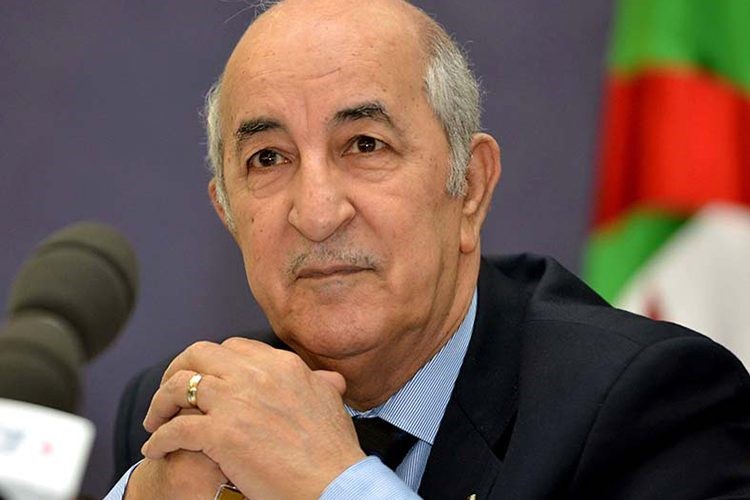
The most significant one, who is widely held as the most plausible is ‘Abd al-Mağīd Tabbūn. The very person, who was Bū Taflīqa’s PM in his last term for three months, right between Sallāl and Ūyaḥyā. Tabbūn, whose name means several funny things in several Arabic dialects, already aged 73, held various ministers in Bū Ṭaflīqa’s first term, and was to lead a more efficient government in 2017, only to be dismissed after three months. Which now might give him some credibility. He, as he underlined in his program announcement, considered himself as an independent candidate, though all in his life he was a firm, yet not high-profile member of the FLN. He is at least close to the old party apparatus, and is viewed as a kind old man, who might jut fill the vacuum until the new leader is found.
The second most likely is a man, who already nominated himself for Aprili is ‘Alī bnu Filīs (Benflis). Aged 75, he is even more experienced, as he served Bū Taflīqa as PM between May 2000 and August 2003. Much of the dialogue process, which managed to restore stability in the country after the civil war is attributed to him. Just like the initially successful new economic policies. He is from the first generation of the post-war political generation and rose fast in the party circles in the ‘80s. He first appeared in the late ‘80s, as he was among those pushing for reforms in the then still one-party state. Between 1988 and 1991 he was Minister of Justice, from which he resigned after the army took control. Since 1989 he was constantly re-elected to the Political Bureau of the FLN, until 2001, when he was even promoted to Secretary-General. At that time also serving as Prime Minister, he was viewed as the strong man behind the emerging leadership after the civil war, and in 2004 the FLN even nominated him instead of Bū Taflīqa for the presidency.
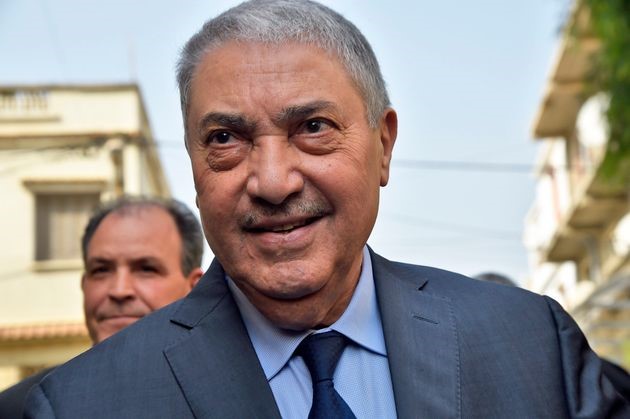
He lost his bid, which lead him to be one of the more vocal adversaries of the now passing government, even though his tenure was also full of major corruption scandals. He resigned from the FLN and tried for some time to stay in the front, but he was gradually sidelined. In 2014 he ran once again for the presidency, but again finished second, thought by this time as an independent candidate. He is marked as the closest possible to the Islamist circles, possibly going along with this growing current, but still an acceptable compromise. He nominated himself for the April elections too, and remarkably managed to stay in the race. By now he is leading his own party, the Vanguards of the Freedoms (Ṭalā‘ī al-Ḥurriyāt), built on his long lasting human rights activist career.
The third candidate is ‘Abd al-Qādir ibn Qarīna (Bengrina), aged 57, President of the National Construction Movement (Ḥarakat al-Binā’ al-Waṭanī), who was Minister of Tourism between 1997 and 1999.
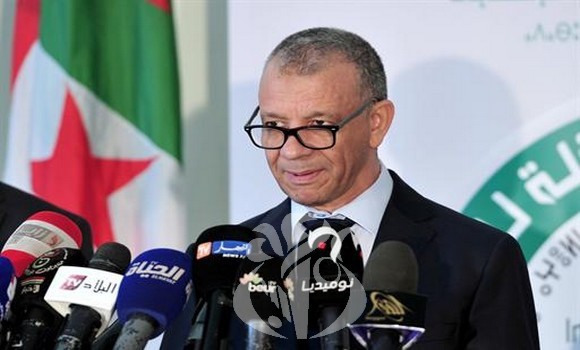
A not specifically touristic era. In 1991 he was one of the founding members of the Islamic Block Movement (Ḥarakat at-Tağammu‘ al-Islāmī), a sort of counter-Islamic Salvation Front movement to win over conservative and religious sympathizers. In the late ‘90s he left this realm to the business world. He is the closest to something called opposition.
The fourth candidate is ‘Izz ad-Dīn Mayhūbī, a 60 years old journalist and a talented poet, who was head of information at the Algerian National Tv for two years in the ’90s, when controlling the news was very important, and later chief executive of the National Library.
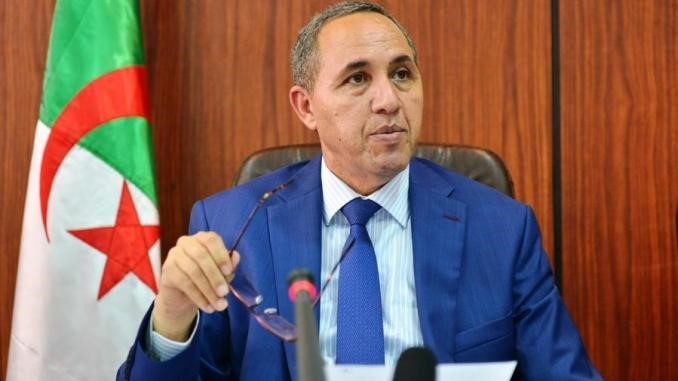
He also served Bū Ṭaflīqa’s last government, but only as Minister of Culture. Which might be forgivable by the voters, but clearly proves that he is not really far from the former party-elite either. Further underlined by the fact that he is nominated by Ūyaḥyā’s National Democratic Block Party (al-Tağammu‘ al-Waṭanī ad-Dīmūqrāṭī).
Finally there is ‘Abd al-‘Azīz bil-‘Ayd, the 56 years old President of the Front of Future party, by which he might seem as the opposition candidate. However, in 1999 he became Secretary-General of the FLN’s youth organization, and followed Bin Filīs into the FLN’s Central Committee after him. He left the party in 2011 to found his own movement a year later.
All these names are practically coming from the same group, the old party elite, but from the less exposed lines. And it is easy to see why Tabbūn is one of the most likely candidates. Two kinds of names, however, strikingly missing from the list. In one hand the FLN did not nominate any candidate, though by the names it is almost as the party jut could not choose from its former members. On the other hand the Islamist movements have no clear candidate either, as Bin Qarīna can hardly be called as such, and to the April elections they had much more significant figures.
Guesses?
It is indeed hard to guess what is about to happen. Not like Tabbūn is not about to win, the only possible surprise might be Bin Filīs’s victory. But by now this is one of the smallest matters. The matter is that the protests don’t seem to stop, and many already renounced the December elections beforehand. There is a general dissatisfaction with the whole political elite, which can all gradually lead to profound revolution. That is so far the least the people want, but if the former elite fails to listen the events might just go that way. Especially that the last strongman, the real caretaker now, Aḥmad Qā’id Ṣāliḥ is also 79. Meaning he cannot possibly last for long, and as this leadership gives concessions to the protestors it crosses such formerly unthinkable lines that can indeed lead to a meltdown.
Hopefully that would not to happen, as Algeria plays a pivotal role in the region’s stability. Would Algeria to succumb to chaos that would have detrimental effects to all neighbors.
All in all, Tabbūn might win, causing amusement in the Arab world with his funny name, but it is unlikely to stop the protests. Where those would come to a halt is hard to know, but it is unlikely to be effected by the presidential elections.

